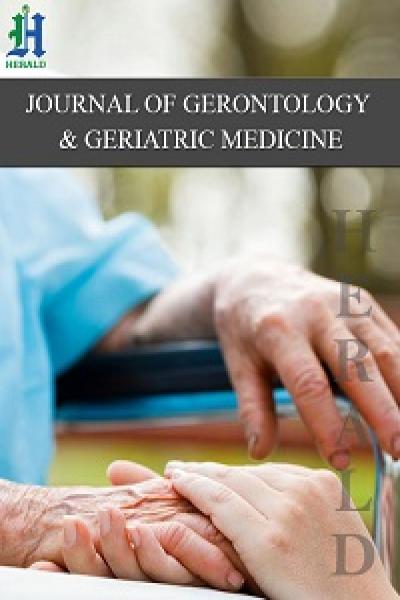
Navigating Vulnerability: Lessons from COVID-19 for Future Disaster Preparedness among Older Adults
*Corresponding Author(s):
Denise Michele MitchellThe School Of Social Work, Tulane University, New Orleans, United States
Tel:+1 7324238502,
Email:dmitc87096@aol.com
Abstract
This commentary reflects on the implications of the COVID-19 pandemic for disaster preparedness among older adults, highlighting the unique challenges they faced and proposing interventions for future emergencies. Drawing from existing literature and expert insights, the commentary underscores the importance of tailored strategies, proactive measures, and interdisciplinary collaboration to mitigate vulnerabilities and promote resilience. The recommendations outlined herein aim to inform policymakers, healthcare professionals, community organizations, and other stakeholders involved in disaster planning and response efforts.
Introduction
The COVID-19 pandemic has brought to the forefront the vulnerabilities of older adults during emergencies. As highlighted in the article "COVID-19 impacts and interventions for older adults: implications for future disasters," older adults have faced disproportionate challenges ranging from increased risk of severe illness to heightened social isolation. This commentary delves deeper into these issues and offers insights into strategies to enhance disaster preparedness among older adults in the future.
Challenges faced by older adults
The pandemic underscored several challenges faced by older adults, including age-related physiological changes, a higher prevalence of underlying health conditions, limited access to healthcare, economic insecurity, and social isolation [1,2]. These factors contributed to their heightened vulnerability and underscored the need for targeted interventions.
Recommendations for future disaster preparedness:
- Proactive Measures: Policymakers and healthcare professionals must prioritize proactive measures in disaster preparedness. This includes developing age-inclusive emergency response plans that allocate resources to meet the diverse needs of older adults, considering factors such as mobility limitations and cognitive impairments [3]
- Enhanced Communication: Efforts should be made to enhance communication channels and information dissemination strategies to ensure older adults receive timely and accurate information during emergencies. Utilizing a variety of communication modalities can help bridge gaps in access and language barriers [4]
- Addressing Social Isolation: Interventions aimed at addressing social isolation and loneliness among older adults are crucial. Virtual support groups, telephone check-ins, and community-based activities can help mitigate isolation and foster a sense of connection and belonging [5,6]
- Leveraging Technology: Technology plays a pivotal role in enhancing access to healthcare services and support systems for older adults during disasters. Telehealth platforms, remote monitoring devices, and mobile applications offer innovative solutions to deliver medical care and social services [7,8]
Conclusion
The COVID-19 pandemic has served as a stark reminder of the vulnerabilities faced by older adults during emergencies. By implementing tailored interventions, proactive measures, and interdisciplinary collaboration, stakeholders can work towards enhancing disaster preparedness and promoting resilience among older adults in the future.
References
- Fisk M, Livingstone A, Pit SW (2020) Telehealth in the Context of COVID-19: Changing Perspectives in Australia, the United Kingdom, and the United States. J Med Internet Res 22: 19264.
- Crews DE, Zavotka S (2020) Aging, disability, and frailty: Implications for universal design. J Physiol Anthropol 25:113-118.
- Tracy K, Watzlaf VJM (2020) mHealth technologies and geriatrics: an integrated review. Journal of Gerontological Nursing 46: 13-19.
- Schaffer DeRoo S, Pudalov NJ, Fu L (2020) Planning for a COVID-19 Vaccination Program. JAMA 323: 2458-2459.
- Holmes EA, O'Connor RC, Perry VH, Tracey I, Wessely S, et al. (2020) Multidisciplinary research priorities for the COVID-19 pandemic: A call for action for mental health science. Lancet Psychiatry 7: 547-560.
- Krendl AC, Perry BL (2020) The impact of sheltering in place during the COVID-19 pandemic on older adults' social and mental well-being. J Gerontol B Psychol Sci Soc Sci 76: 53-58.
- Bashshur R, Doarn CR, Frenk JM, Kvedar JC, Woolliscroft JO (2020) Telemedicine and the COVID-19 Pandemic, Lessons for the Future. Telemed J E Health 26: 571-573.
- Ablah E (2020) The COVID-19 pandemic: A national and local case study. Journal of Public Health Management and Practice 26: 308-317.
Citation: Mitchell DM (2024) Navigating Vulnerability: Lessons from COVID-19 for Future Disaster Preparedness among Older Adults. J Gerontol Geriatr Med 10: 203.
Copyright: © 2024 Denise Michele Mitchell, et al. This is an open-access article distributed under the terms of the Creative Commons Attribution License, which permits unrestricted use, distribution, and reproduction in any medium, provided the original author and source are credited.

